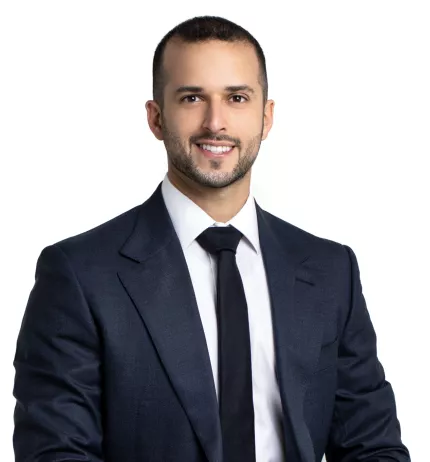
Abdullah Alibrahim
Dr. Abdullah Alibrahim is a health-systems engineer who applies advanced quantitative and computational methods to inform real-world health systems reforms. Dr. Alibrahim is an Associate Professor of Industrial & Management Systems Engineering at Kuwait University and a Fellow with the Middle East Initiative at Harvard Kennedy School’s Belfer Center. He earned a Ph.D. and an M.S. in Industrial & Systems Engineering from the University of Southern California and an M.S. in Industrial & Systems Engineering from the University of Wisconsin–Madison.
As an advisor to Kuwait’s Minister of Health, he has shaped the national strategy, with a strong focus on the digital infrastructure roadmap and the forthcoming National Health Strategy 2030. His policy advice draws on research that integrates systems engineering, complexity science, and large-scale computational methods to test alternative financing and service-delivery models.
Regionally, he leads comparative studies of GCC healthcare financing and conducts policy-discourse analyses that unpack ambitious reforms for transferrable policy lessons. He is also a Research Fellow at the Dasman Diabetes Institute’s GeoHealth Lab and formerly a Visiting Fellow at the London School of Economics’ Middle East Centre. He collaborates with teams at the University of Chicago and the London School of Hygiene & Tropical Medicine on projects that address health disparities and system-wide efficiency in various care settings.
Beyond Kuwait, Dr. Alibrahim develops hybrid agent-based and system-dynamics models to evaluate pay-for-performance incentives in maternal and child health in Tanzania, offering decision-makers a counterfactual lens on resource allocation and service quality. At home, he leads an grant on cancer care delivery in collaboration with the Kuwait Cancer Control Center that couples a digital twins of care services and process-mining of patient pathways—work that quantifies bottlenecks, optimizes scheduling, and informs team-based cancer-care protocols in the country.
-
Fellow, Middle East Initiative, (2023-2024; 2024 - 2025; 2025 - 2026)
Kuwait Program Research Fellow, Middle East Initiative (Spring 2023)
Programs & Projects
-
Program
